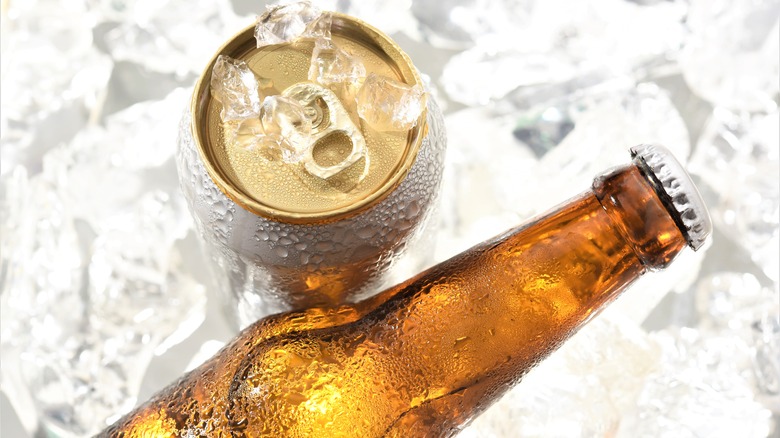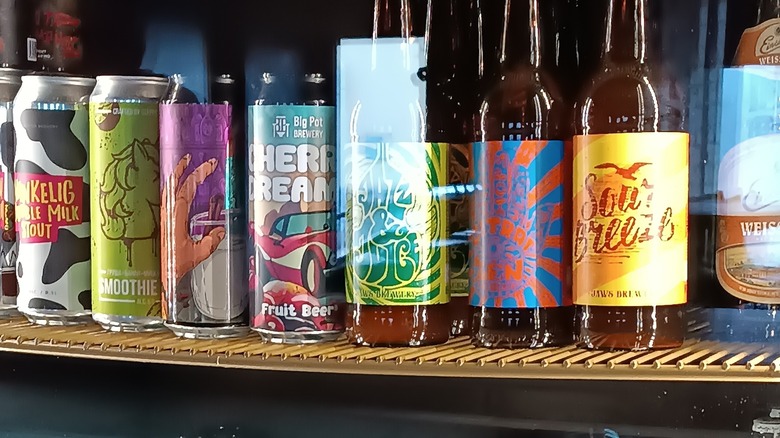Does Canned Beer Last Longer Than Bottled?
From pilsners to stouts, beer comes in many different types, whether it's from a microbrewery or a major domestic producer. Still, it's almost always packaged the same — either in aluminum cans or a glass bottles. While bottled beer and canned beer each have their pros and cons, the simple fact is that packaging can make a difference in a beer's shelf life. Yes, beer can spoil under the wrong conditions. So, which one is better to keep the brew at its best for longer?
A big factor is light. Beer and UV light go together about as well as peanut butter and sawdust. Keeping light away from your suds is essential to its longevity and flavor. Because cans keep the contents from being exposed to UV light, canned beer tends to last longer than bottled. This is also important when comparing the effectiveness of darker bottles to lighter bottles. Because lighter-colored bottles (typically clear or green) expose the contents to more UV light, the beer is more likely to "skunk" or become "lightstruck," which essentially means it tastes and smells off. While dark bottles do protect beer from UV light, cans just do it better. On top of that, cans are airtight and keep out oxygen, which can make beer go bad. Ultimately, the reason canned beer often tastes better is that cans prevent beer from skunking or going stale.
What is the best way to package beer?
While our beloved Anthony Bourdain admittedly wasn't a fan of craft beer — or its hipster culture — there's nothing pretentious about wanting your beer at its best. Along with UV light, there are a few other factors to consider when storing beer that affect its shelf life and flavor over time, including keeping it upright or refrigerating it.
Although the simple answer is that cans protect beer from oxygen and UV light, a study published in ACS Food Science & Technology found that other more complex factors are at play. Comparing amber ales with IPAs (both canned and bottled), researchers noticed different changes over time, based more on the beer type than the packaging. Specifically, amber ale aged better in a bottle than in a can, while there wasn't a huge difference with the IPA.
Another study published in Beverages revealed that participants tasting the same beer poured into a cup from either a bottle or can believed the bottled version tasted better. (They couldn't tell the difference when they didn't see the packaging in blind taste test.) That suggests there's also something psychological going on. While the debate of can versus bottle among beer connoisseurs will likely rage on, the path to great tasting beer is to buy it fresh and store it in a cool, dark place — preferably in the fridge.

